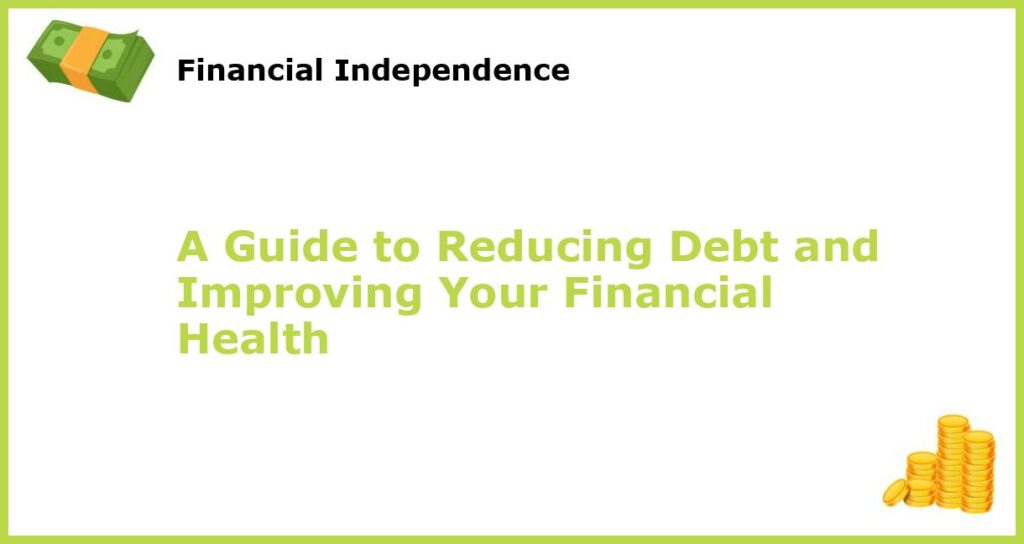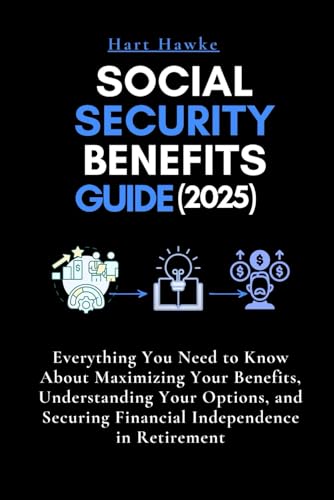Debt can be a major source of stress and anxiety in many people’s lives. Whether you’re dealing with student loans, credit card debt, or other financial obligations, it can be challenging to find a way out. Fortunately, there are steps you can take to reduce your debt and improve your financial health. By understanding the nature of your debt and creating a plan to tackle it, you can take control of your finances and work towards a more secure future.
The Debt Problem

Dealing with debt can feel overwhelming, but the first step to reducing it is to understand exactly what you’re dealing with. Take some time to make a list of your debts, including the interest rates and minimum payments for each one. This will give you a clear picture of where you stand and help you develop a plan to pay off your debts strategically. Consider targeting high-interest debts first to minimize the amount of interest you’re paying over time.
Once you have a clear understanding of your debts, it’s important to resist the urge to avoid them. Ignoring debt will only make the problem worse in the long run. Instead, face your debt head-on and work towards a solution.
Creating a Budget

One of the most effective ways to manage debt and improve your financial situation is to create a budget. This will help you get a better understanding of your income and expenses, and ensure that you’re living within your means. Begin by making a list of all your income sources and monthly expenses, then compare the two. If your expenses are higher than your income, you’ll need to find ways to cut back on your spending.
Consider tracking your spending for a few weeks to get a better idea of where your money is going. You can use free budgeting tools or apps to help you create and track your budget more easily. As you work to reduce your debt, it may also be helpful to create specific goals for yourself, such as putting a certain amount of money towards your debts each month.
Consolidating Debt

If you have multiple debts with high interest rates, consolidating them into one loan with a lower interest rate can help you save money on interest and simplify your payments. This can be especially helpful if you’re struggling to keep track of multiple payments each month. However, it’s important to do your research and read the terms and conditions carefully before taking out a consolidation loan. Some loans may come with hidden fees or other disadvantages that could end up costing you more in the long run.
Another strategy for reducing your debt is to transfer your balances to a credit card with a 0% introductory APR. This can give you a window of time to pay off your debt without accruing more interest. Keep in mind, though, that you’ll need to pay off the entire balance before the introductory rate expires to avoid high interest charges.
Reducing Expenses
One effective way to free up money to pay off debt is to look for areas where you can cut back on your spending. This might include eating out less, canceling subscriptions you don’t use, or negotiating bills to get better rates. Small changes can add up over time – even saving a few dollars each week can make a difference in the long run. Consider making a list of your monthly expenses and see where you could potentially cut back.
Another way to reduce your expenses is to look for free events or activities in your area. You may be surprised at the number of free options available for entertainment or recreation. Additionally, consider carpooling or using public transportation to save on gas and transportation costs.
Increasing Your Income
If you’re struggling to make ends meet or pay off debt, increasing your income may be a necessary step. This could mean asking for a raise at work, taking on freelance work or starting a side business, or selling items you no longer need. Consider your skills and resources and think creatively about potential income streams. Even a small increase in income can help you pay off your debts more quickly.
Remember, though, that increased income will only be effective if you’re also taking steps to reduce your expenses. If you’re not careful, it’s easy to fall into the trap of “lifestyle inflation,” where your expenses increase alongside your income.
Credit Counseling and Debt Management Programs
If you feel like you’re in over your head with debt, credit counseling or debt management programs may be a helpful option. These services can help you develop a realistic budget and work out a repayment plan with your creditors. It’s important to do your research and choose a reputable service provider, as some programs may come with fees or negatively impact your credit score.
Working with a credit counselor or debt management program can help you feel more in control of your finances and provide you with the tools you need to reduce your debt effectively. However, it’s important to recognize that it’s ultimately up to you to make the changes necessary to improve your financial situation. Counseling or management programs may support you along the way, but the hard work of reducing debt and improving financial health is ultimately up to you.
Avoiding Debt in the Future
Reducing your current debt is only half the battle – it’s also important to take steps to avoid falling into debt in the future. This means practicing good financial habits, such as creating a budget and saving for emergencies. It may also mean avoiding high-interest debt like credit card debt if possible.
Consider setting up an emergency fund to cover unexpected expenses, and automate your savings to make it easier to build up your savings over time. Avoiding debt means recognizing that sometimes you may have to make difficult choices or sacrifices in the present to ensure a more secure future.
Investing for the Future
While reducing debt should be a priority, it’s also important to think about the future. Investing in a retirement account, for example, can help you build long-term wealth and financial security. Even small contributions over time can add up to a significant nest egg over time, thanks to the power of compound interest.
Consider working with a financial planner or using online tools to help you determine the best retirement savings strategy for your needs. Starting early is key to maximizing your savings potential and ensuring that you’re on track to meet your financial goals.
Changing Your Money Mindset
Finally, it’s important to recognize that making lasting changes to your financial situation often means changing your mindset around money. This means taking a close look at your relationship with money and working to adopt healthier attitudes towards spending and saving.
Consider educating yourself on financial literacy by reading books or attending workshops or webinars. Setting clear financial goals for yourself can also be helpful – visualize what your ideal financial situation looks like and work towards that vision. With commitment and determination, you can make real progress towards improving your financial health and reducing debt over time.
Conclusion
Reducing debt and improving financial health is a challenge, but it’s also a worthwhile goal. By taking steps to create a budget, reduce expenses, and strategically pay off debts, you can regain control of your finances and work towards a more secure financial future. Along the way, be sure to take care of yourself and stay motivated by your long-term goals. With persistence and hard work, you can achieve financial freedom and peace of mind.







